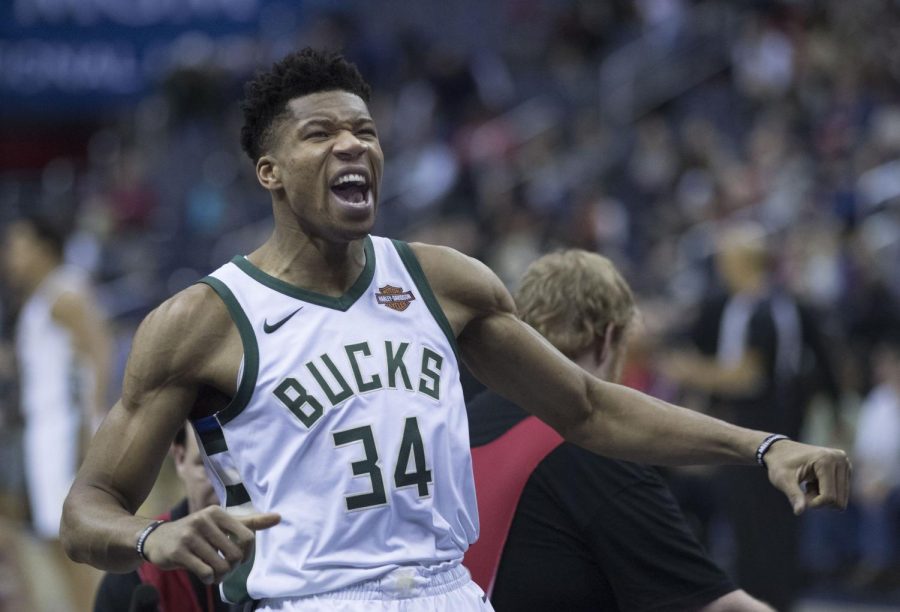A Bad MVP Choice
Photo Credit: Keith Allison
Giannis Antetokounmpo, the NBA’s back-to-back MVP.
December 15, 2020
The NBA’s MVP award is the most coveted individual achievement a player can receive. Voted on by media members, the award considers many factors; however, some of these have come into question. The 2020 MVP race epitomized these problems, tarnishing the award’s value. Giannis Antetokounmpo of the Milwaukee Bucks ran away with MVP, earning 85 first place votes, while LeBron James of the Los Angeles Lakers finished second with only 16 first place votes.
Perhaps the most controversial aspect of the award, the MVP only accounts for the regular season, neglecting the season’s summit: the Playoffs. Over 50% of teams make the Playoffs, so performing well in the regular season should not be the award’s foundation. The disparity of competition between the East and West is embarrassing. Despite enduring a tougher conference and schedule, LeBron’s Lakers only finished 4 games behind Giannis’s Bucks. Furthermore, the real marquee matchups are in the Playoffs, not the regular season. The best players miss regular season games due to “load management,” and touch the ball more in the Playoffs, shedding an even brighter spotlight on the true MVP. Giannis was eliminated by the Heat 4-1 in the semifinals this year while LeBron won the championship and Finals MVP. LeBron beats Giannis in Playoff value.
Most of these media “experts” decide their vote solely based upon a player’s stats, relating them to his value to the team, which abides by the award’s definition. Analysts refer to the league’s most popular stat, PER, or Player Efficiency Rating, which measures the over-all contribution a player makes. This season, Giannis averaged the highest PER in NBA history, and the media rushed to award him for it. PER is calculated via a complex formula that takes a player’s season averages into consideration; however, it possesses glaring flaws. It overvalues rebounds, allowing big men like Giannis to have higher PERs than guards, and volume players, empowering Giannis, who lacks a true second star, while slighting LeBron, who shares the ball with Anthony Davis. Also, PER is calculated on a per-minute basis. It recognizes garbage time just as much as the last minute of the Finals. Analysts value the wrong stats and should consider impact stats such as plus-minus, which LeBron led in, rather than contextless season averages. Though this factor is oversold, LeBron beats Giannis statistically.
The narrative is the most unique factor of every MVP’s season. Controlled by the community, it considers random storylines. Derrick Rose won because he challenged the Heat Big Three. Steph Curry won because he revolutionized how the game was played. Russell Westbrook won as a 7th seed because of Kevin Durant’s departure. Observing these three MVP seasons, the narrative changed, and with it, so did the criteria for winning MVP. Additionally, the narrative generates voter fatigue once a player wins the award. Though this factor means less than the others, neither of the candidates benefit from this factor more than the other.
With how the MVP is voted on and what it stands for nowadays, the award does not matter. If a player plays well in the regular season, puts up the correct stats, and controls a favorable narrative, he will win the MVP. If the NBA wants the award to matter again, they need to prioritize Playoff success first, stats second, and narrative third. This year, for example, LeBron James should have won the MVP, not Giannis Antetokounmpo. In conclusion, the MVP award considers the correct factors but wrongly prioritizes them, and the award has ended up in the wrong hands in 2020.

